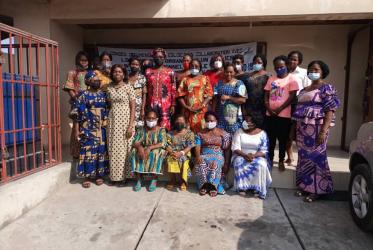Displaying 1 - 11 of 11
#WCC70: A prayer about health and healing
20 July 2018
Youth engagement fundamental to HIV response
18 April 2017
New videos help congregations hasten HIV response
20 October 2016
Voices from HIV workshop reflect deep impact
07 April 2016
Church in Philippines launches book on HIV and AIDS
19 February 2014
A church that listens fosters healthy communities
15 March 2013






